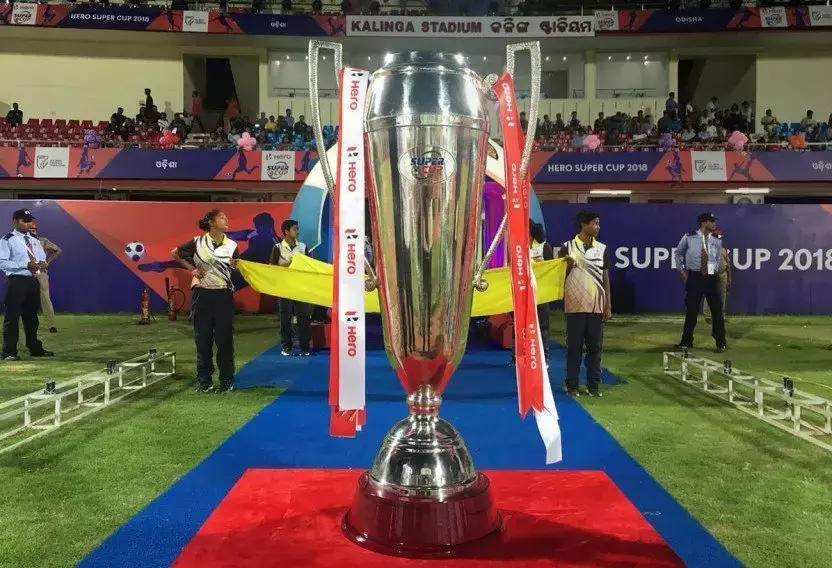Football
Decoding the issues surrounding the 'Kalinga' Super Cup
Kalinga Super Cup's scheduling clash with the Asian Cup, coupled with the complexities surrounding the release of players and the advantageous stakes for clubs, highlights a need for more inclusive planning by the AIFF.

The Super Cup has been rebranded as the Kalinga Super Cup by AIFF. (image via AIFF)
The recent announcement by the All India Football Federation (AIFF) regarding the return of the Super Cup, rebranded as the 'Kalinga' Super Cup, has sparked a wave of discontent within the football community. While the focus has been on the name change, the real issues lie in the timing and implications of the tournament.
Set to take place from January 8 to 29, the Kalinga Super Cup coincides with the Asian Cup 2023, where the Indian senior national team will be busy playing their matches, including a face-off against a formidable Australia.
Despite assertions by national team head coach Igor Stimac that the Asian Cup is not a top priority, the inherent significance of the tournament cannot be understated.
National team vs clubs
The preparation for the Asian Games witnessed a protracted battle between the Indian Super League clubs and the AIFF regarding the release of under-23 players.
Now, with the Asian Cup on the horizon, the national team's intention to field its strongest lineup raises questions about whether clubs, some contributing up to six players, will willingly release their vital cogs, potentially compromising their competitiveness in the Super Cup. Although it is mandatory to release players during Asian cup, evading it is not an undoable task.
India is drawn in Group B along with Australia, Syria and Uzbekistan in the upcoming Asian Cup to be held in Qatar.
Crucially, the stakes have been raised with the AIFF declaring that the Kalinga Super Cup champions will be nominated to participate in the AFC Champions League 2 Preliminary Stage for the 2023-24 season.
This added incentive not only intensifies resistance from clubs but also provides a significant advantage to teams with fewer national team players.
Struggle of I-League clubs
The plight of I-League clubs further complicates the situation. While all 12 Indian Super League (ISL) clubs secure confirmed spots, the method of qualification for I-League clubs remains ambiguous.
Unlike the previous edition, where qualifiers were determined based on season-end standings, mid-season qualifiers pose challenges. The fairness of determining rankings mid-season is questionable, and financial constraints may force some clubs to withdraw, especially if the AIFF does not offer financial aid.
The disregard for I-League clubs has been evident in past editions, raising concerns about the AIFF's planning and organisation. The pressing question is why the federation is reluctant to strategise the season, including cup competitions, early on, adopting a home-and-away format that spans the domestic season. Such an approach could not only accommodate more I-League clubs but also address the financial challenges faced by some teams.
